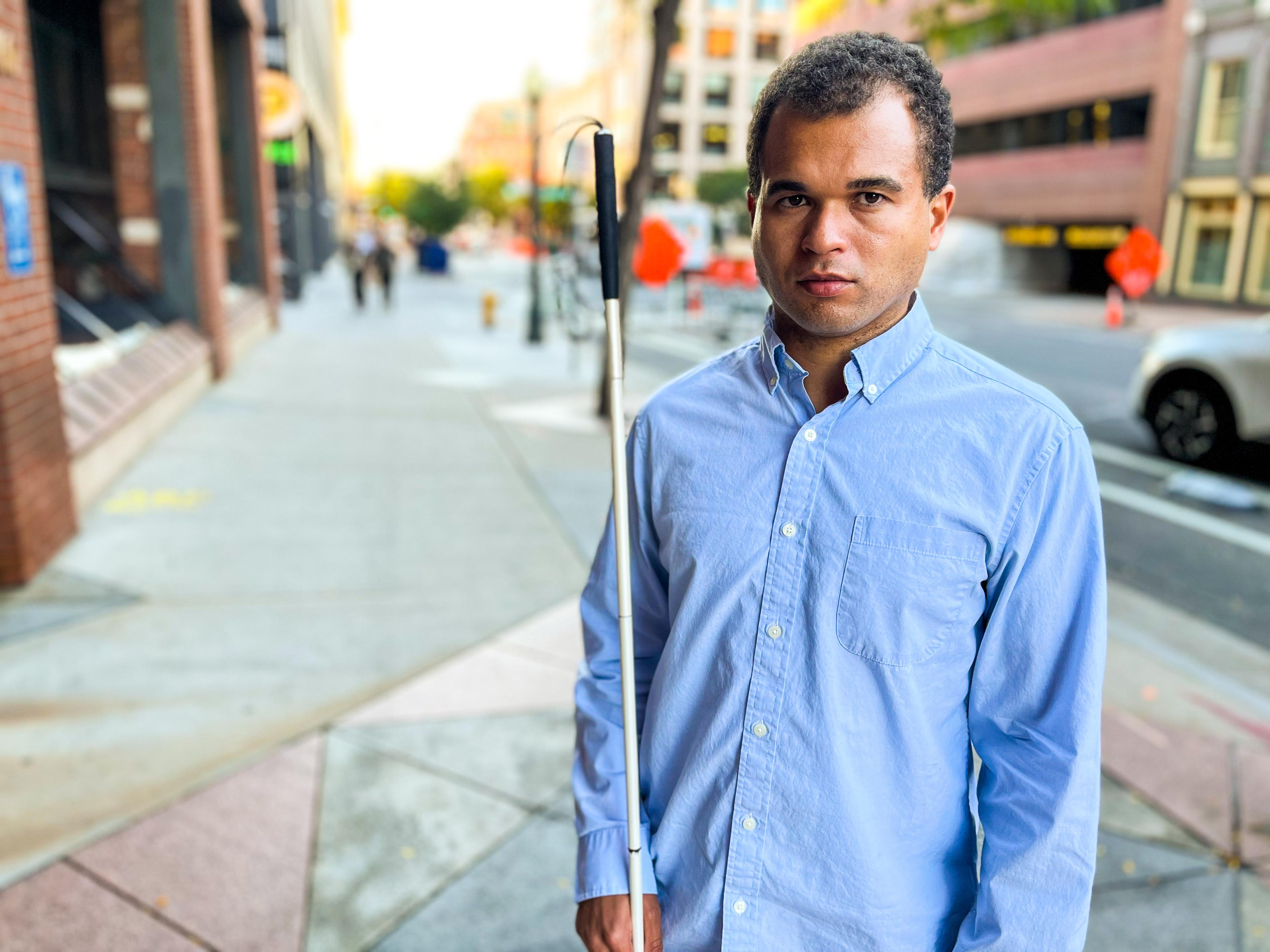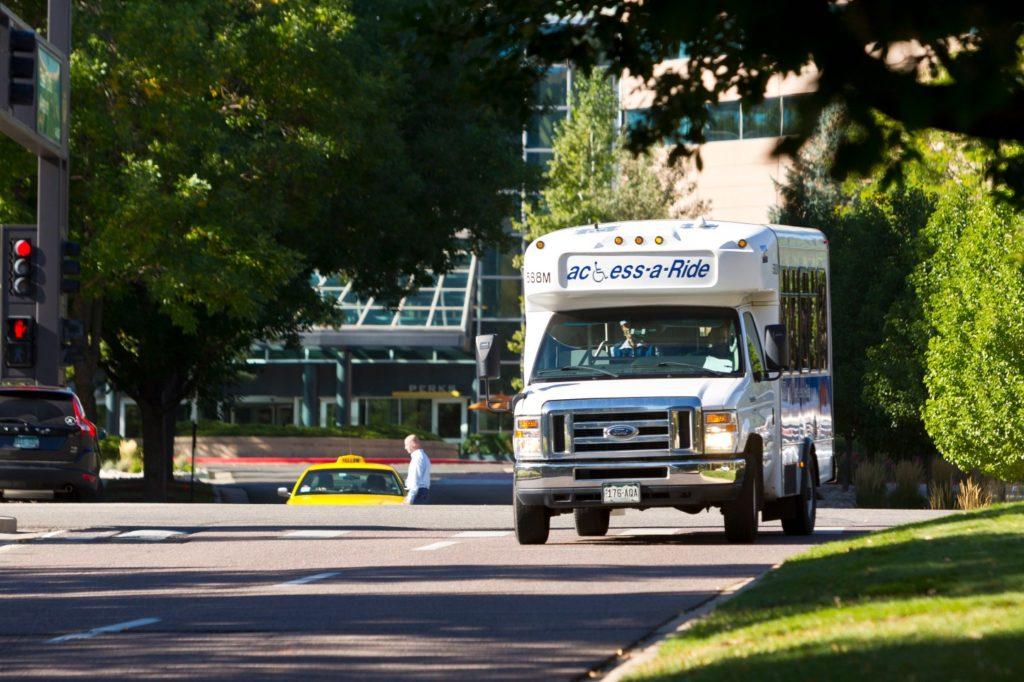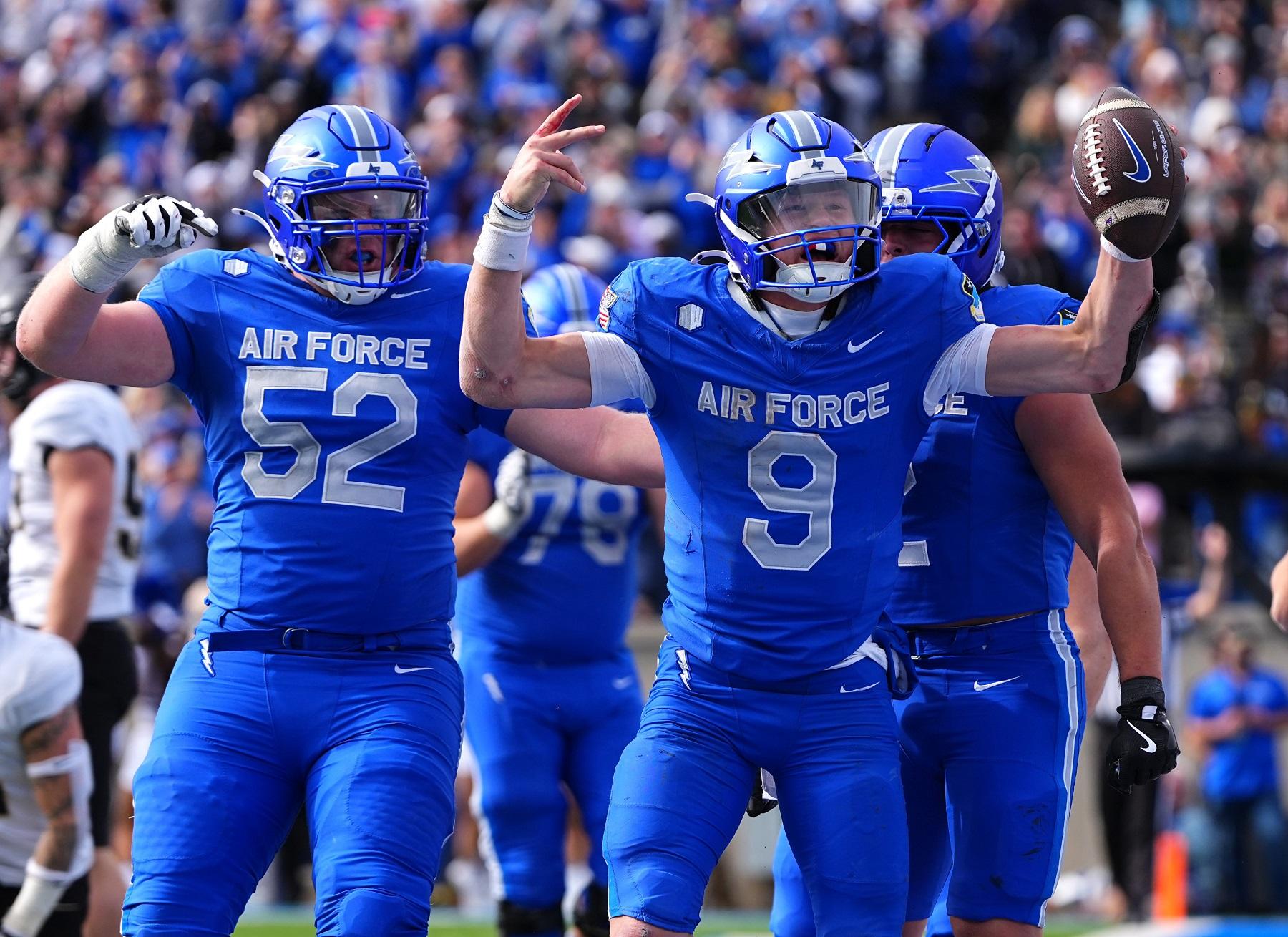
For years, the Regional Transportation District’s main offering for riders in wheelchairs and with other disabilities required that they wait for a stubby, meandering bus to take them to their jobs, doctor’s offices and other appointments.
Then, in 2020, the transit agency piloted a new program that subsidized Uber rides for its Access-A-Ride customers. Later, two taxi companies and Lyft were added to the mix.
Suddenly, instead of having to schedule trips at least a day in advance, riders like Charles Davis of Centennial could call a car and quickly deliver his son to child care and then continue on to work.
“It has been hugely transformative,” said Davis, who is blind and cannot drive. “It’s changed my life in such a positive way.”
The Access-on-Demand program has exploded in popularity since it launched, growing from about 6,000 monthly rides in January 2021 to about 60,000 in August.
But that popularity has now turned into a problem, officials say. RTD’s spending on Access-on-Demand has ballooned from $85,000 a month in the program’s early days to more than $1 million a month now, according to agency documents.
The agency’s board of directors will soon consider changes to Access-on-Demand and its other paratransit services in an effort to make them financially sustainable and, officials say, more equitable for all of its users.
“It’s causing disparate treatment,” General Manager and CEO Debra Johnson told RTD’s board of directors on Tuesday. “Not all the public can use Access-on-Demand.”
Access-on-Demand users are mobilizing to protect it. More than a dozen told RTD’s board this week that the program has changed their lives for the better, and that RTD should not change it so much that it loses its utility.
“Any reduction in this system would deeply impact our community,” said Maureen Nietfeld, a staffer at Colorado Center for the Blind. “As disabled Coloradans, we deserve equity. Your Access-A-Ride system, I’m sorry, it’s a broken system. And Access-on-Demand works. It’s absolutely fantastic.”
RTD must provide a safety net paratransit service. Access-on-Demand goes beyond that
The federal government requires local transit agencies like RTD that receive federal funding to offer basic “safety net” paratransit service that mirrors its fixed-route bus and rail service. RTD is required, for example, to offer paratransit service only near its bus and rail lines and only during the hours when buses and trains run.
RTD meets those requirements with its Access-a-Ride service, which sends accessible shuttles all over the Denver metro.
It’s not a very flexible or user-friendly service: Qualifying customers must reserve a ride at least 24 hours in advance and are given a 30-minute window in which the ride is supposed to start though that can stretch out longer. Vehicles also pick up and drop off multiple passengers, making trips longer.
While Access-a-Ride’s reliability has improved in recent months, it’s historically had an on-time performance of less than 80 percent. It’s also expensive to run: RTD paid well over $60 per ride on average, the agency said last year.

RTD launched its Access-on-Demand program to succeed its old “Access-a-Cab” service and be a lower-cost complement to Access-a-Ride. RTD also calls it a “premium” service that goes beyond what is federally required to provide. The agency pays the first $25 of a trip, with the rider covering the rest. An initial up-front fare of $2 was later dropped, but RTD does limit the program to 60 rides in a month.
Access-a-Ride users quickly took to the new program, with more than 2,500 current users. RTD surveys show that while satisfaction rates for Access-a-Ride jumped significantly to 80 percent this year, they are still higher for Access-on-Demand at 86 percent.
But RTD has struggled with what it sees as inequities between the two programs.
Many took advantage of Uber’s ability to book multiple-stop rides, a software feature that RTD is currently trying to prevent its customers from using. Most Access-on-Demand vehicles aren’t wheelchair accessible either and waits for the few that do exist grew long enough that RTD has provided some of its own.
And while Access-on-Demand is significantly cheaper per ride — $16, on average — officials say its boom means it’s busting its budget.
“We don’t want to see this program go away,” Fred Worthen, RTD’s assistant general manager for bus operations told the board Tuesday. “We see the value of this. We see what it does provide for individuals. We’re trying to find that balance where we are providing services that meet a majority of our customer’s needs, but again, are equitable and fiscally sustainable.”
The board will soon vote on changes to its paratransit program. But it wants public feedback first
RTD recently commissioned a peer review of all of its paratransit services that made some recommended changes like increasing fares for Access-on-Demand and shrinking where and when it’s available.
Agency staff are collecting feedback from the public now about possible changes. The board will consider them in November and any major changes would go into effect next May.
It’s possible state lawmakers may complicate that process, however. A bill under consideration would, among other things, require any transit agency in the state to analyze impacts before making cuts to paratransit.
Charles Davis, the blind Access-on-Demand user, said he wants RTD to slow down their plans for changes to give time for people like him to make their voices heard. He said he’d be fine paying more for a more convenient ride — he just doesn’t want the service to go away.
“I have no issue at all with paying a base fare to keep this service alive,” he said.
Access-a-Ride user James Triplett told the board his disability makes it impossible for him to use Access-on-Demand — so he’d like to see improvements to his program, too. Three Access-a-Ride trips can take him eight hours to complete. But, he said, it’s all he’s got.
“If we didn’t have Access-a-Ride, many of us would basically be prisoners in our own homes,” Triplett said.









